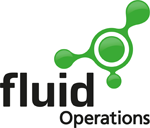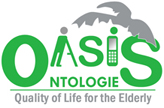Frank van Harmelen

Vrije Universiteit Amsterdam
10 Years of Semantic Web research: Searching for universal patterns
At 10 years of age, there is little doubt that the Semantic Web is an engineering success, with substantial (and growing) take-up in business, government and media. However, as a scientific field, have we discovered any general principles?
Have we uncovered any universal patterns that give us insights into the structure of data, information and knowledge, patterns that are valid beyond the engineering of the Semantic Web in its current form?
Frank van Harmelen is a professor in Knowledge Representation & Reasoning in the AI department (Faculty of Science) at the Vrije Universiteit Amsterdam. After studying mathematics and computer science in Amsterdam, he moved to the Department of AI in Edinburgh, where he was awarded a PhD in 1989 for his research on meta-level reasoning. While in Edinburgh, he co-developed a logic-based toolkit for expert systems, and worked with Prof. Alan Bundy on proof planning for inductive theorem proving. After his PhD research, he moved back to Amsterdam where he worked from 1990 to 1995 in the SWI Department under Prof. Wielinga, on the use of reflection in expert systems, on the formal underpinnings of the CommonKADS methodology for Knowledge-Based Systems. In 1995 he joined the AI research group at the Vrije Universiteit Amsterdam, where he co-lead the On-To-Knowledge project, on of the first Semantic Web projects. He was appointed full professor in 2002, and is leading the Knowledge Representation and Reasoning Group. He was one of the co-designers of the OWL Web Ontology Language Language. He is currently scientific director the LarKC project (http://www.larkc.eu), aiming to develop the Large Knowledge Collider, a platform for very large scale semantic web reasoning.




















